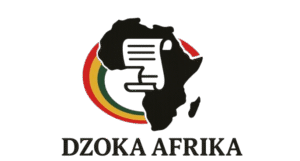CEO Africa Roundtable chief economist Tatenda Nyachega told DzokaAfrika that the African Continental Free Trade Area (AfCFTA) should serve as a platform for building regional value chains, shared infrastructure, and collective resilience, in order to bring widely needed transformation to Africa’s economic landscape. Below are excerpts from DzokaAfrika’s interview with Nyachega on his perceptions on Zimbabwe and Africa.
How would you describe the current economic environment in Zimbabwe?
Zimbabwe’s economy is projected to grow around 6% in 2025, driven by a recovery in agriculture, strong mining exports, and improved electricity supply. However, annual inflation remains extremely high (~92%), and confidence in the new gold-backed ZiG currency is fragile, with the USD still widely used. Fiscal deficits and unsustainable public debt continue to weigh on the economy, while climate shocks, power shortages, and governance challenges pose additional risks. Despite these pressures, opportunities exist in the country’s rich mineral resources, agricultural potential, and infrastructure investments, though medium- to long-term stability depends on sustained reforms in fiscal policy, debt management, and institutions.
How does Zimbabwe’s economic climate compare with that of other African countries?
Compared to most African economies, Zimbabwe stands out as an outlier: while its growth outlook for 2025 (~6%) is stronger than the continental average (~4%), it also suffers from some of the continent’s highest inflation (~90%), one of the tightest monetary policies (35% interest rate), and ongoing currency instability with its new ZiG struggling to gain trust alongside the USD. By contrast, countries like South Africa, Kenya, Botswana, and Mozambique enjoy lower inflation and more stable currencies, while peers such as Nigeria and Ghana also face high inflation and interest rates but with somewhat stronger buffers. Zimbabwe’s structural challenges—unsustainable debt, climate shocks, power shortages, and weak currency credibility—are more severe and overlapping than in many African economies, leaving its recovery more fragile despite strong mineral and agricultural potential.
What are the common challenges facing African economies?
Across Africa, economies differ widely, but several common challenges cut across most countries:
- Inflationary Pressures – Rising food and fuel costs, exchange rate volatility, and global shocks (e.g. energy prices, supply chain disruptions) keep inflation elevated in many countries.
- Debt Sustainability – Many governments face high public debt and rising debt service costs, limiting fiscal space for investment in infrastructure and social programs.
- Currency Weakness & Dollar Shortages – Several currencies (naira, cedi, kwacha, etc.) have depreciated sharply, making imports costly and fueling inflation.
- Climate & Weather Risks – Droughts, floods, and erratic rains undermine agriculture (a major employer and export earner), affect energy supply (especially hydropower), and increase food insecurity.
- Energy Constraints – Power shortages, under-investment in generation and transmission, and reliance on costly imports hinder industrialization and competitiveness.
- High Unemployment & Informality – Large youth populations face limited job creation, leading to high unemployment, underemployment, and reliance on the informal sector.
- Governance & Institutional Weaknesses – Policy uncertainty, corruption, and regulatory hurdles discourage investment and undermine confidence.
- Global Vulnerabilities – Dependence on commodity exports (oil, gold, copper, etc.) makes economies vulnerable to global price swings and external shocks.
What more do you think needs to be done to bring African countries closer to each other economically? Do you think the African Continental Free Trade Area (AfCFTA), in its current format and trajectory, is the answer?
The AfCFTA is a necessary but not sufficient answer. On its current trajectory, it provides the framework for integration but won’t deliver its full promise unless backed by deeper commitments: massive infrastructure investment, regulatory harmonization, stronger financial integration, and political discipline to overcome protectionism. In addition, there is a need to develop industrial and value chains, enhance private sector empowerment, and. address security and stability issues across the continent. If countries treat it as more than just a trade deal — as a platform for building regional value chains, shared infrastructure, and collective resilience — then it can transform Africa’s economic landscape.
Your annual conference is coming up. What are your expectations, and what will you focus on?
The CEO Africa Annual Roundtable 2025 aims to convene high-level leaders from business, government, and international institutions to shape Africa’s future under the theme “Future-Ready Africa: Connecting Ideas, Creating Value.” The event will focus on key growth drivers, including agriculture and climate resilience, energy and industrialization, infrastructure development, health and wellness, technology and AI, and financial systems, while also addressing geopolitics, investment readiness, and the socio-economic role of sports and culture. Expectations are to foster influential networking, unlock business opportunities, enhance policy dialogue, and position Africa as a global hub of innovation, sustainable growth, and smart partnerships.
About CEO Africa Roundtable
The CEO Africa Roundtable is a high-level platform for corporate chief executive officers and senior executives in both the public and private sectors, created to stimulate the cross-fertilization of critical economic and business knowledge in and around Africa. CEOs are integral to the operations of companies and quasi-government institutions, which makes their positioning in economic development strategically important. The Roundtable, therefore, serves to empower them with a wide range of packages, including researched data, synergies, investment facilitation, and business and investment profiling. It is run by a lean team of competent professionals through a board of governors and management under the guidance of a chief executive officer.
What is your vision?
We envision an economically advanced Africa where public and private sector citizens are a dynamic force in the global arena. We thrive in championing inclusive and sustainable economic development across the African continent.
